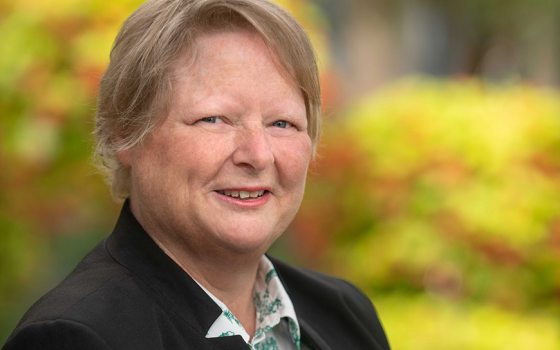This article first appeared in issue 300 of Longwood Chimes, from Winter 2020.
Education has been a major part of my horticultural career. Seven years of it, in fact, spent within structured horticultural training programs. I’ve always held a strong view that learning and new experiences go hand in hand. They provide fresh perspectives, a wider scope, and, of course, the incalculable value of knowledge you gain from others along the way.
In my home country of New Zealand, I oversee apprenticeships as part of my operational management role at Dunedin Botanic Garden. I often say to our apprentices as they graduate that life in what I call “the botanic garden bubble” is limiting: your zone of knowledge will never grow if you don’t push yourself beyond your role and comfort zone. I tell them that leaving their botanic garden to gain fresh perspectives means that they will likely return with valuable expertise for their garden. Even if they don’t return to the same garden, they may end up making their mark in the wider public horticulture industry. This is why educational programs are vital for public gardens and those who work in them. Institutions such as Longwood Gardens that prioritize education are benefiting the next generation of public garden visitors; not only those within their own garden gates, but in the wider industry as well. The invaluable opportunity of training at Longwood was made possible for me at a pivotal point in my career—all I needed to do was to step outside of my comfort zone and take action.
In 1994, I was a 25-year-old qualified gardener at New Zealand’s Dunedin Botanic Garden when I embarked on a life-changing journey to the United States for what was then termed the Longwood Gardens’ International Gardener Program. The 12-month program was my first trip out of New Zealand by myself, and with it, a huge step into the unknown. I was excited to learn how horticulturists in America gardened, to see the North American flora, and to experience a new country and culture.
Each day at Longwood brought a new adventure, from tending the enormous lilies in the Waterlily Display to planting boxwoods in the Main Fountain Garden with my American colleagues. Beyond the horticultural knowledge I gained, the Longwood Gardens team and supervisors imbued in me confidence and leadership skills that continue to shape my work today. From Longwood, I gained a commitment to training the next generation, maintaining the highest horticultural standards, and carefully balancing botanical integrity with cultural relevance.
As I write in 2019, I am double the above-mentioned age and have embarked on my second journey to Longwood Gardens, this time to spend 13 months in the Longwood Fellows Program. This return journey to Longwood is my fourth trip out of New Zealand to work and study, so this time around I was more comfortable to set forth on my endeavor ... however, it was still a huge step into the unknown as I wound down my 18 years in operational management at Dunedin Botanic Garden. The awe I had felt when I first arrived at Longwood in 1994 returned immediately, but this time it was more profound because Longwood had lived for the past 25 years as a cherished memory in my mind.
Along the way I’ve valued these educational opportunities and am committed to providing training programs and career guidance wherever I work. I often reflect on my start in horticulture, just wanting to work outside and in nature, and a chance was provided by way of an apprenticeship. Nearly 30 years later, it is my turn to give chances to ensure the continued success of our public gardens globally.
Big things come of small starts and opportunities. This is something else I often reflect upon. Could the people who gave me my first start have fully comprehended where I would end up? They possibly had an inkling of my potential, but in reality, unrealized potential is all around us. They took a chance based on what they saw in me and a chance is all one needs. That first open door unlocks the next, and then the next. Even a closed door is a positive challenge, as there is always a way to unlock it with enough commitment.
So, the real responsibility on us all is to first realize potential in others—guide and encourage them, be patient, and create a safe, positive and open learning environment. We must also understand that we ourselves have more potential than we often realize or admit. Committing to stepping into the unknown and pushing beyond our comfort zones should be something all of us aspire to each and every day.


